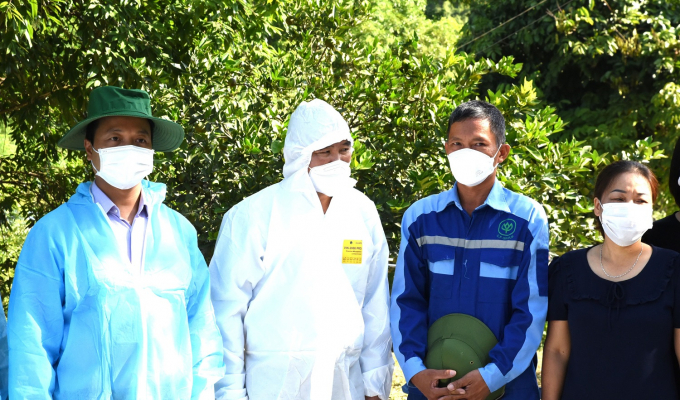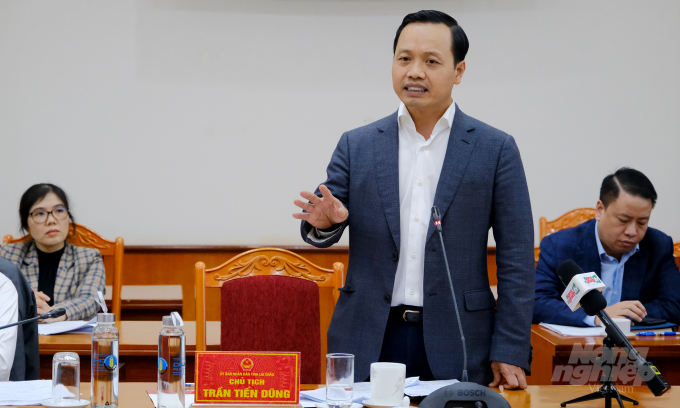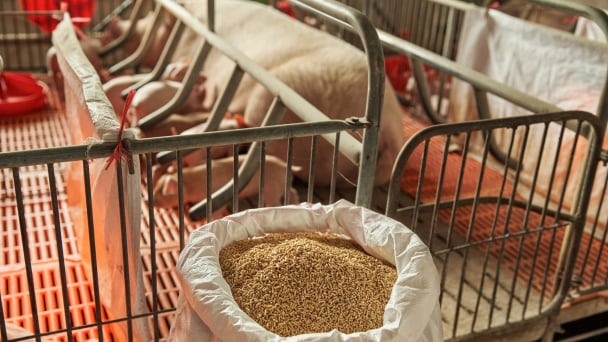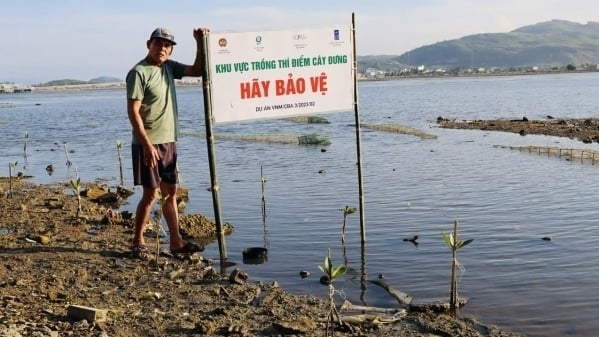May 22, 2025 | 17:24 GMT +7
May 22, 2025 | 17:24 GMT +7
Hotline: 0913.378.918
May 22, 2025 | 17:24 GMT +7
Hotline: 0913.378.918

Deputy Minister of Agriculture and Rural Development Phung Duc Tien at the meeting with the People's Committee of Lai Chau province. Photo: Bao Thang.
"To restructure the agricultural sector, Lai Chau province needs to focus on three factors: country - region - OCOP. All must be according to scale, commodity ratio, and production chain," said Deputy Minister of the Ministry of Agriculture and Rural Development at a meeting with the People's Committee of Lai Chau province on November 1.
Lai Chau is a province with great potential for agricultural development. The farmland area is more than 526,000 hectares, accounting for 58% of the province's natural area. The agricultural growth rate in 2020 will reach 5.58%, which is top of the country.
The most significant barrier to agricultural development in many other localities is land, but Lai Chau has strengths. The average land area per head is 2.2 hectares - 6 times higher than the national average. The unused land is about 240,000 hectares. The total area of agricultural land that can be converted to high-value crops is more than 20,000 hectares.
Lai Chau also has excellent potential for river and stream systems, as well as hydropower reservoirs. The total area of the lake surface of the province is more than 16,600 hectares, of which about 5,000-6,000 hectares are suitable for cage fish farming with freshwater fish.

Deputy Minister Phung Duc Tien visits Mr. Tran Van Tuan's pig farm in Pa Hao village, Ban Giang commune, Tam Duong district. Photo: Ba Thang.
Until now, Lai Chau agriculture is known mainly for small production. In terms of cultivation, rice products are primarily consumed within the province. Some forest products cannot be exported to China.
Regarding livestock, the primary method in the area is in the form of smallholder farmers (accounting for over 99%), outdated breeding practices, grazing cattle, small weight, mainly local breeds.
In the working, 14 leading agricultural enterprises in the country attended and consulted many ideas for Lai Chau agriculture development.
Businesses like Dong Giao, CP, Guilin, T&T, and Nafoods are concerned mainly about the investment environment, the province's support policies, and the infrastructure and traffic development plan.
Chairman of Lai Chau Provincial People's Committee Tran Tien Dung said that Lai Chau is one of the provinces with the highest investment rate in agriculture.
To restructure according to Central Resolution 26 and Decision 899 of the Government, Lai Chau is now developing concentrated goods for some essential products such as tea (over 8,500 hectares), macadamia (over 5,600 hectares), fruit trees (over 8,200 hectares), rubber (nearly 13,000 hectares).
Tea is Lai Chau's strength, with the output of fresh bud tea reaching 44,000 tonnes, the output of dried tea reaching about 10,000 tonnes per year. The province's tea products have been exported to many markets, such as the Middle East, South Asia, and Taiwan.
One of the things businesses are most afraid of when pouring capital into Lai Chau is the transport infrastructure. However, soon, this issue will be resolved.
"Lai Chau will focus its resources on developing a variety of agricultural models, such as organic agriculture, circular agriculture..." Chairman Tran Tien Dung said.
In the coming time, the province will continue to develop multi-purpose forest trees. In addition, the province will maintain an area of about 10,000 hectares of safe and quality tea while focusing on developing processing according to the requirements of the export market.
Regarding livestock, Lai Chau is promoting many projects to develop livestock cages and organize plans for collecting livestock waste, improving herds, and providing quality breeds.
Mr. Tran Tien Dung promised to prioritize businesses organizing large-scale breeding and developing cattle such as beef cattle, dairy cows, and pork pigs. In addition, the province also plans to build an organic fertilizer factory associated with livestock.

Mr. Tran Tien Dung, Chairman of Lai Chau People's Committee. Photo: Bao Thang.
There is a lot of potentials, but Lai Chau agriculture has not been fully developed. According to the Ministry of Agriculture and Rural Development leader, the province needs to have an open policy on investment and organize thematic surveys.
"With its duties and functions, the Ministry of Agriculture and Rural Development will connect businesses to conduct field surveys in Lai Chau. On the provincial side, I suggest that the People's Committee will organize seminars and conferences in the direction of thematic, to help businesses that have needs to survey specific industries and raw material areas," said Deputy Minister Phung Duc Tien.
Chairman of Lai Chau Provincial People's Committee, Mr. Tran Tien Dung, proposed signing an investment commitment with the Ministry of Agriculture and Rural Development.
Mr. Dung also suggested that the Ministry of Agriculture and Rural Development support the province to organize an investment promotion conference to restore production organization after the epidemic, helping businesses overview the market.
Believing in the feasibility of the task of helping Lai Chau agriculture industry develop in the coming time, Chairman Tran Tien Dung expressed: "I believe that all businesses sitting here will find common ground in agricultural development strategy."
Deputy Minister Phung Duc Tien further noted that Lai Chau needs to choose special and endemic products in Lai Chau in the immediate future and promote propaganda and promotion both at home and abroad.
Translated by Ha Phuc

(VAN) CJ Feed&Care officially launched the FCR improvement campaign called “2025 Find Challenge Reach” in April 2025. In Vietnam, this campaign is implemented by CJ Vina Agri.

(VAN) The swamp in Pho Thanh is gradually being covered with red mangrove, creating a favorable environment for producing clean, high-quality salt.

(VAN) The trade turnover of agro-forestry-fishery products is growing significantly, along with investment cooperation commitments that are opening up new development directions between Vietnam and Russia.

(VAN) Khanh Hoa is investing over 545 billion VND to develop 240 hectares of high-tech marine aquaculture in order to guarantee a consistent supply of seafood exports and achieve the USD 1 billion target.

(VAN) Minister of Agriculture and Environment Do Duc Duy held a meeting with Soopakij Chearavanont, Chairman of C.P. Group, on May 15.
/2025/05/16/3800-0-nongnghiep-143756.jpg)
(VAN) Suntory PepsiCo Vietnam coordinated with the Ministry of Education and Training to implement an education program on water conservation, reaching nearly 1 million primary school students nationwide.

(VAN) Vietnam’s TH Group officially put its high-tech fresh milk processing plant into operation in the Russian Federation, marking a historic moment as the first TH true MILK cartons were produced in Russia.